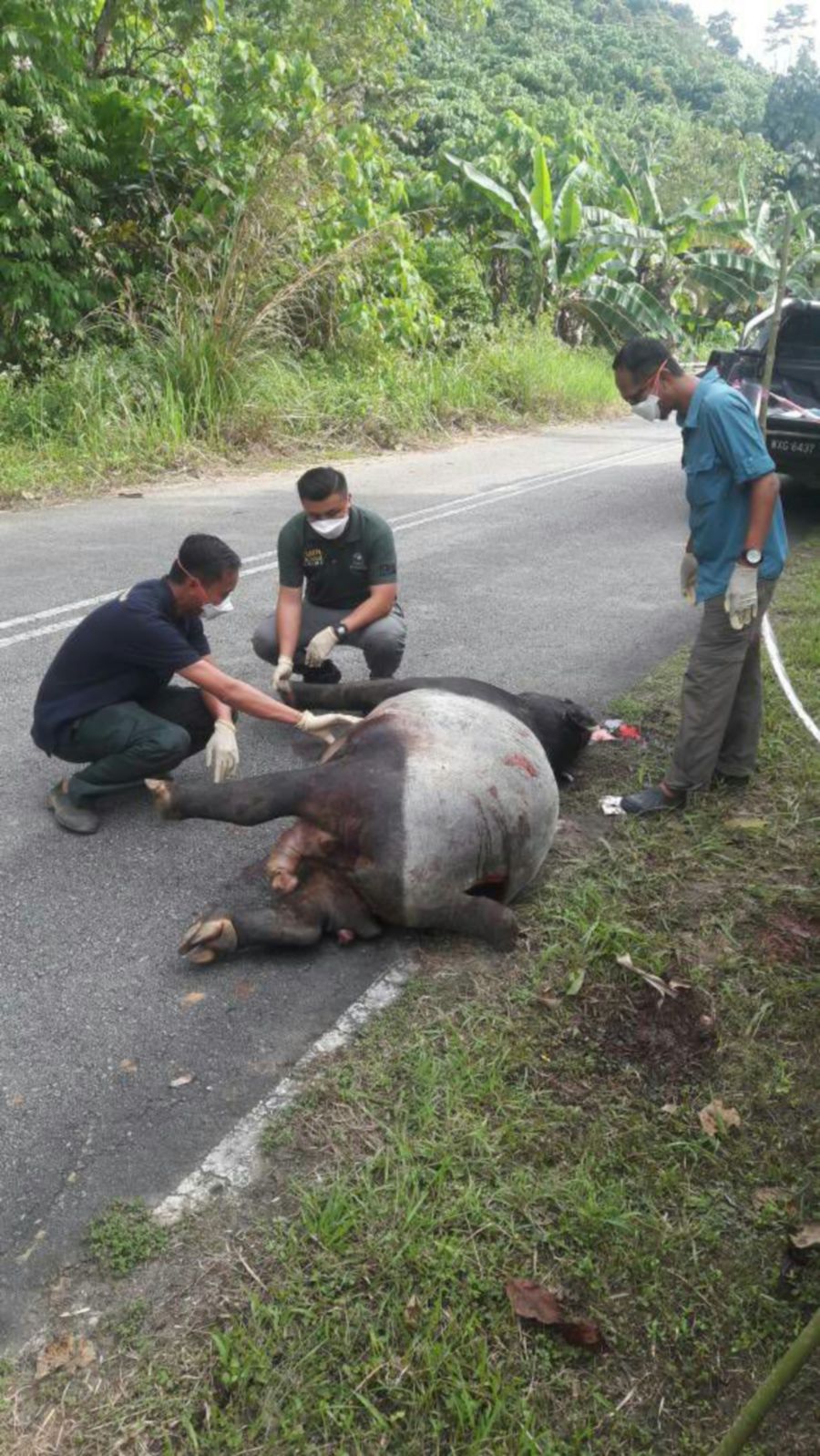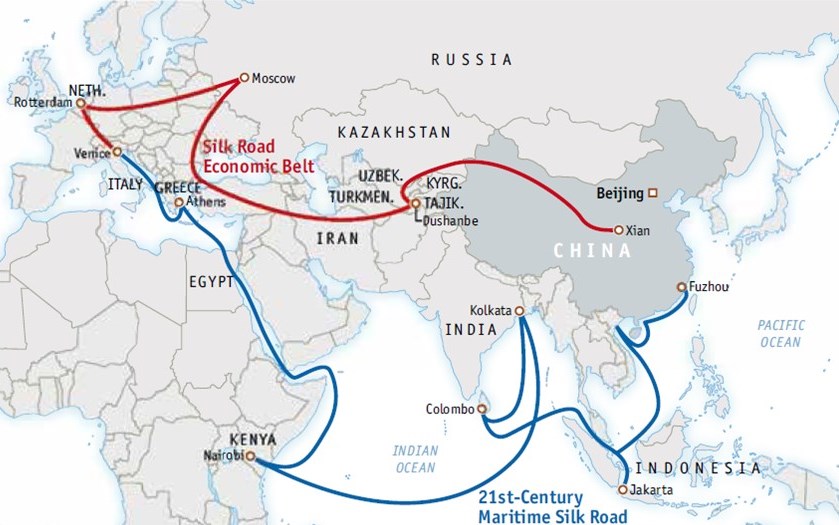
Monday, February 26, 2018
Saturday, February 24, 2018
Thursday, February 22, 2018
We need to understand better about forest hydrology cycle so that we can manage water in the forest, managing flood and other environmental services. Sometime is unfair the timber companies extracted timbers from forest, damaging them and left river pollution, killing fishes, fragmented forest and habitat lost for wildlife. They should sponsor good research in order to have datas to be used in helping decision makers.
Sunday, February 18, 2018
Plastic pollution is not new issue and it is still hot discussed at all levels in the world. The final destination is ocean and problem to the marine life. Malaysia must play roles in managing plastic bags. Plastic pollution is not a political games but it is true environmental problems and all parties must responsible to control plastic pollution.
Friday, February 16, 2018
Continuous pressure on ULU MUDA FOREST RESERVE. Forest fire, illegal encroachment for rubber planting, deforestation, logging and low water level in the dam that serving water for Kedah, Penang, Perlis and Langkawi. We need to protect and preserve ULU MUDA and gazette it as Kedah State Park.



The pictures above were taken on 3 March 2014.
Thursday, February 15, 2018
Wednesday, February 14, 2018
Non state actors is very important in protecting urban green highlands and riverine systems. The need good basic education to understand good sustainable urban ecosystems. Concrete building with poor green, drainage systems and solid waste and water treatment systems need to be avoided. Non state can give opinion to the authorities so that the greedy business people no destroy the rights of the public.



May be three pictures below can be used for discussion. Many efforts have been done by the Malaysian Nature Society for the past 78 years the problems on habitat destructions, wildlife conservation and habitat loss are continue. Education and public awareness must be continued and must be more aggressive at all levels.



Tuesday, February 13, 2018
Malaysian Nature Society (MNS) has organise Annual Raptor watch Weekend at Tanjuang Tuan Melaka since 1999. The event is one way of activities to promote awareness and educating public on raptors migration and conservation. The activities make public to appreciate nature and the environment. We need to improve the activities not just a celebration and education and awareness BUT research and Government Recognition.

The Declaration on New Urban Agenda in the Ninth session of the World Urban Forum provide a new challenge to the Government of Malaysia and the Malaysian Citizen. All young one must aware of the current development and prepare for 2030 and beyond. A lot of STI (science, Technology and Innovation) will involve.
Kuala Lumpur Declaration on cities 2030.
We, the participants of the Ninth session of the World Urban Forum — representing national, sub-national and local governments, parliamentarians, civil society, older persons, women, youth, children, persons with disabilities, grassroots groups, indigenous peoples and local communities, private sector, foundations and philanthropies, international and regional organizations, academia, professionals and other relevant stakeholders — gathered in Kuala Lumpur, Malaysia, to localize and scale up the implementation of the New Urban Agenda as an accelerator to achieve the Sustainable Development Goals.
Led by a strong spirit of collaboration, creativity and innovation, we share our aspirations for the future of Cities 2030 as the Cities for all where no-one and no place is left behind.
To this end, we call for the deployment of all efforts, means and resources available towards the operationalization of the concept of cities for all, ensuring that all inhabitants, of present and future generations, without discrimination of any kind, are able to inhabit and produce just, safe, healthy, accessible, affordable, resilient and sustainable cities and human settlements to foster prosperity and quality of life for all.
We believe that global, regional, national and local implementation frameworks of the New Urban Agenda being formulated since its adoption should be supported by key enablers capable of unlocking positive transformation, such as:
- Strengthening the role of sub-national and local governments, urban governance systems that ensure continuous dialogue among different levels of government and participation of all actors, and increasing multilevel and cross-sectoral coordination, transparency and accountability.
- Encouraging sharing of creative solutions and innovative practices which enable a shift in mindset necessary to drive change.
- Building inclusive partnerships and strengthening age and gender responsive environments to ensure meaningful participation and engagement at all levels.
- Adopting integrated territorial development, including through appropriate urban planning and design instruments, to ensure sustainable management and use of natural resources and land, appropriate compactness and density, diversity of uses, and revitalization of cultural heritage.
- Deploying monitoring and reporting mechanisms, including assessment of impacts, that encourage best practices for effective policy making.
We draw attention to the persistent challenges faced by our cities and human settlements, such as:
- Limited opportunities and mechanisms for youth, women and grassroots organizations, as well as other civil society organizations, local, subnational and national governments, international and regional bodies to work together in planning, implementation and monitoring;
- Inequitable access to the city, including to decent jobs, public space, affordable and adequate housing and security of land tenure, safe, efficient and accessible public transport and mobility systems, infrastructure and other basic services and goods that cities offer;
- Insufficient protection from human rights violations, including forced evictions, and inadequate inclusion of people living in poverty, persons with disabilities and other disadvantaged groups in urban planning, design, and legislation processes;
- Gender inequalities in urban economic and leaderships spheres.
We recognize that today we face emerging challenges that require urgent actions, including:
- Recognizing that crises are increasingly urban, which calls for inclusive urbanization tools adapted to local contexts and to the nature of natural and human made disasters and conflicts, as well as to guide humanitarian assistance, fast track recovery, and contribute to building and sustaining peace.
- Managing the complexities of increased migration into cities, at all levels, leveraging positive contributions of all and using more inclusive planning approaches that facilitate social cohesion and create economic opportunities;
- Understanding the impact of new technologies and potential of open and accessible data, which require governance and design models that help to ensure no one is left behind;
- Addressing growing social and cultural inequalities, lack of access to economic opportunities, that are increasingly manifested in cities.
- Responding to environmental degradation and climate change concerns.
Actionable recommendations
We, the participants of the WUF9, leveraging the advantage of the Forum, which convenes thousands of decision makers, key actors, stakeholders and communities, generated a wealth of ideas.
We encourage the acceleration of the implementation of the New Urban Agenda through:
Frameworks
- Encourage the formulation of implementation frameworks for the New Urban Agenda at all levels, including monitoring mechanisms, providing a coordinated space for an effective contribution from all stakeholders, aligning to the efforts and actions of the 2030 Agenda and other international, regional, national, subnational and local development frameworks.
- Support the creation and consolidation of inclusive platforms and agendas for dialogue among all levels of government, decision makers and stakeholders such as regional, national and local Urban Forums and committees that can strengthen policy review and assessment of impacts. These can also foster exchange of experiences and cooperation, as well as scaling up voluntary commitments and actions from all partners.
- Further develop and advocate for integrated territorial development, which includes integration of sectoral policies, institutions and investment; integration among the different spheres of government; spatial integration across the urban-rural continuum; improved coordination across actors; and enhanced alignment of national, subnational and local policies with international agendas.
- Adapt innovative and robust mechanisms for the diversification and expansion of the means of implementation, to cater for complex and integrated approaches promoted by the New Urban Agenda. Technological innovations and improvements, research, capacity building, technical assistance and partnership development, among others, may require enhanced resourcing.
Governance and partnerships
- Adopt multiple collaborative governance mechanisms that actively engage national, subnational and local governments, all groups of society, including youth, women and grassroots organizations and particularly the excluded, vulnerable and disadvantaged groups. This work in solidarity is critical to promote more buy-in and co-responsibility in the activities towards sustainable urban development, and to ensure the sustainability of the results.
- Promote multi-stakeholder constituency-based coalitions to use the implementation of the New Urban Agenda to better prevent, prepare, and respond to urban crises.
Innovative solutions
- Foster a culture of creativity and innovation to be embedded in the way cities and human settlements operate.
- Develop monitoring and data collection mechanisms, including community generated data, to enhance availability of information and disaggregated and comparable data at city, functional urban areas and community levels. This would promote informed and evidence-based decision making and policy formulation, assessing progress and impact at all levels.
- Create an enabling environment and develop capacities for scaling up of good practices including municipal finance, sustainable private and public investments in urban development and job creation, and generating value while advancing the public good.
- Adopt accessibility and universal design as core principles into national, subnational and local action plans for implementing the New Urban Agenda through inclusive, accessible and participatory processes and consultations.
We, the participants of the Ninth Session of the World Urban Forum, recognize the value of the Forum convened by UN-Habitat as an inclusive platform to collect inputs from a broad range of stakeholders and to feed these into annual and quadrennial reporting on progress in the implementation of the New Urban Agenda.
We call to further develop the role of UN-Habitat as a focal point in the United Nations system to support all countries and mobilization of stakeholders in the implementation, follow up and review of the New Urban Agenda, including through scaled up normative support.
We thank the Government of Malaysia, the City of Kuala Lumpur, and UN-Habitat for organizing the Forum, and commit to provide continuous cooperation to the next hosts, the Government of the United Arab Emirates and the city of Abu Dhabi.
Kuala Lumpur, 13 February 2018
Wednesday, February 7, 2018
Tuesday, February 6, 2018
Again tapir died hit by vehicles. We should look for better ways of stopping tair from hit by car.

male tapir was killed after being hit by a vehicle along Jalan BudA male tapir was killed after being hit by a vehicle along Jalan Budu-Dong near Kampung Tualang PadaA male tapir was killed after being hit by a vehicle along Jalan Budu-Dong near Kampung Tualang Padang, Raub, Pahang yesterday. Pix courtesy of State Wildlife and National Parks departmentng, Raub, Pahang yesterday.
https://www.nst.com.my/news/nation/2018/02/330977/male-tapir-killed-after-being-hit-vehicle
I do not know from which school they are from. In tropical country like Malaysia, more than 200 days a year rain, when we expose soil will cause surface erosion then caused sedimentation in the river systems. When river water become milky, cloudy, and sedimentation then change the original form of water including water quality. This means that the pollution occurs. Those say logging not harming environment need to go back to school.

Issue discussed in recent workshop and seminar was very hot and focus on water supply in the future and illegal logging. May be pub;ic still not very concern about effect of logging on the environment and water resources. Catchment areas should not be logged and must be kept for ever. More education and research need to be done. Younger generation must understand and support this effort for their future need.


Subscribe to:
Comments (Atom)

































